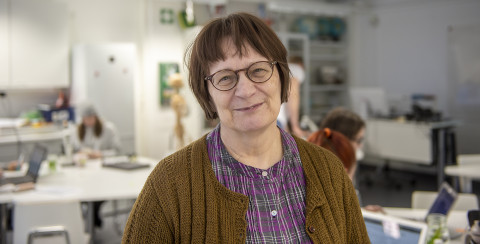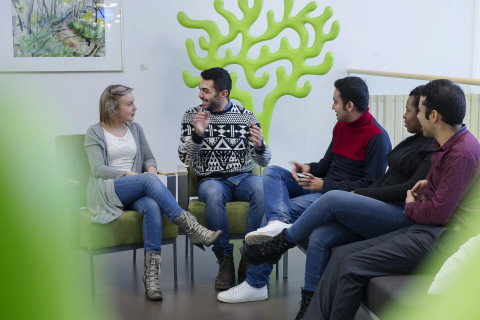Young people are not very keen on science. The field has suffered from declining interest especially in Europe and other Western countries, and the trend seems to be similar throughout the world.
Secondary school students (that is, students between 13 and 15 years of age) know very little about career opportunities in the fields of science, technology, engineering or mathematics. This one reason why the fields are unpopular, and young people don’t have an idea of the professions available to them after pursuing further studies in these fields.
“Many students know that if they intend to become medical doctors, their upper secondary education should include an advanced syllabus in physics, chemistry and mathematics. Unfortunately, however, that’s about as much as they know,” Professor of Education Tuula Keinonen says.
She is the coordinator of the MultiCO project, which is an EU-funded longitudinal study seeking to raise youth awareness of science careers and to increase their future preferences for choosing science studies. The project started in 2015 and will finish in late 2018.
“In the project, we’ve presented real life science careers to secondary school students and highlighted the importance of science studies. Many have been surprised at the diversity of different careers involving science. Air traffic controllers, software designers, zoologists and meteorologists, to pick a few examples, all need science studies in their pocket.”
In addition to Finland, MultiCO includes partners from the UK, Germany, Estonia and Cyprus, with three schools participating from each country. The study focuses on the topics of interest and choices of study of 13–15 year-old students.
“The project has attracted plenty of interest because it is coordinated by us Finns. Finland’s reputation as an educational leader puts some positive pressures on us,” Keinonen explains, smiling.
Concrete approaches
The MultiCO project takes a novel approach to science. Students get to learn about the field in a more concrete manner than before, and they have also participated in the planning and implementation of teaching, as well as in the creation of career scenarios.
“Here in Joensuu, we’ve had a couple of companies as partners since the beginning. Companies such as NanoComp, Fortum and Joensuun Vesi have invited students over to learn about the field’s career opportunities, and representatives of some of these companies have also visited schools.”
The idea has been to share information about different professions in a lucrative manner, for example through a story. Particular attention has also been paid to bringing forth women who have chosen to pursue a science career.
The project also includes decision-makers, industrial companies, civic organisations, parents and teachers. The partners, in turn, are offered research-based knowledge of students’ perceptions and of what constitutes an interesting approach.
“According to our interviews, students have liked the company visits best. Indeed, they have been an excellent way to present the field’s career opportunities in a positive light.”
In the project, science-related scenarios showcasing different professions are used in teaching, and researchers analyse students’ perceptions of them.
“These scenarios are mainly based on professions that deal with the challenges Europe is facing, such as water, waste, energy, climate change, food, health and transportation.”
Each scenario starts a learning process in which students work together to solve a problem that has been identified as a meaningful topic of research. The process develops students’ team work skills, creativity and argumentation.
“We work with real professionals and our scenarios highlight not only science-related skills, but working life skills, too.”
Increased awareness of opportunities
The project is nearly completed, with some final surveys and interviews awaiting to be completed. According to Keinonen, it is still too early to tell whether the measures taken in the project have influenced the choices of further study among 15-year-old students.
“However, we can already say that we’ve succeeded in raising students’ awareness of professions and career opportunities involving science.”
Students see the scenarios as a good way to learn, and they feel that it is crucial for our world to solve problems in the field of science in particular.
“However, whether or not this awareness will have an impact on their choice of further study or career aspirations remains to be seen.”
The MultiCO project is funded by the European Union’s Horizon2020 Science with and for Society programme.

